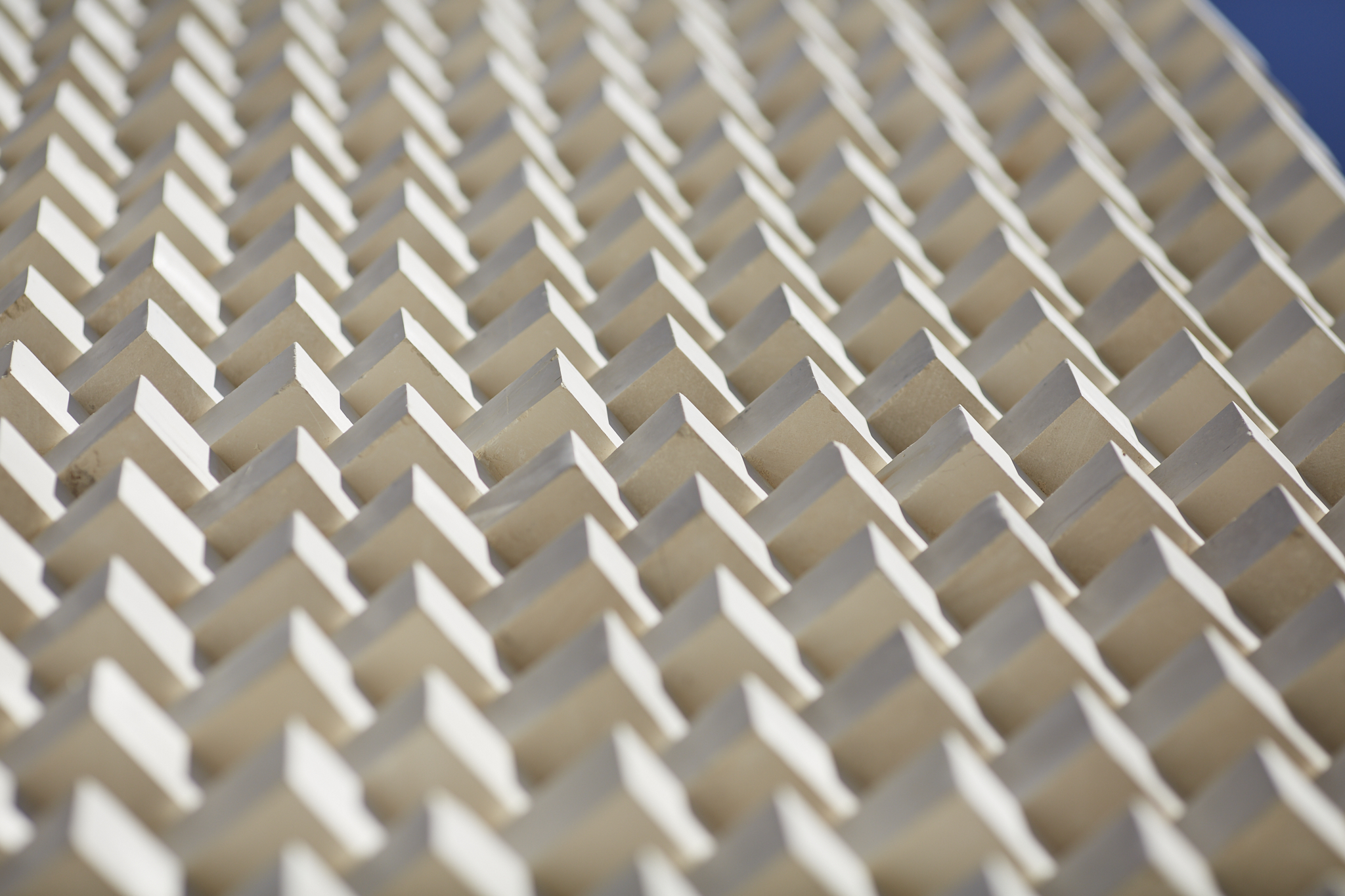


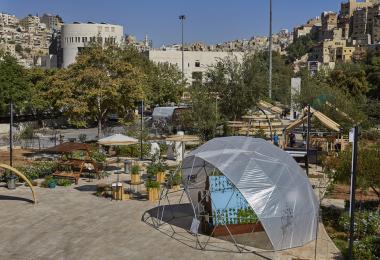
Lying at the intersection of science, technology, invention, and design; Amman Design Week 2019 brings designers together with farmers to present new ways of looking at the future of food.
© Amman Design Week 2019
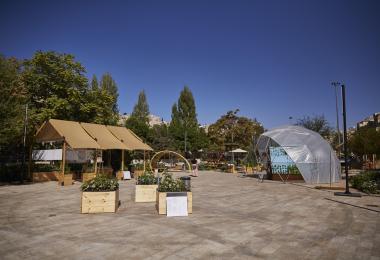
Lying at the intersection of science, technology, invention, and design; Amman Design Week 2019 brings designers together with farmers to present new ways of looking at the future of food.
© Amman Design Week 2019
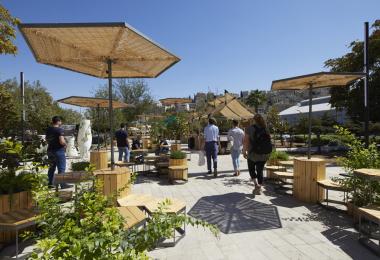
‘Design your own Public Space’ is a modular system designed to empower users to take an active role in composing their own public space.
Photo by Edmund Sumner
© Amman Design Week 2019
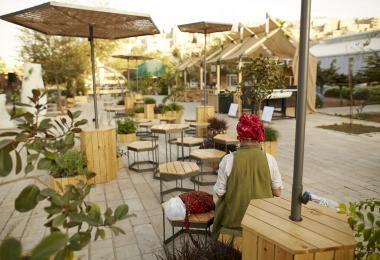
‘Design your own Public Space’ is a modular system designed to empower users to take an active role in composing their own public space.
© Amman Design Week 2019
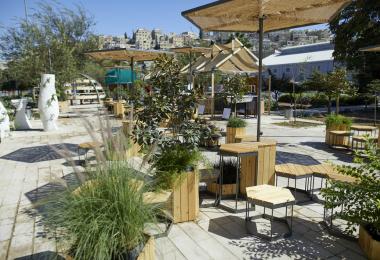
‘Design your own Public Space’ is a modular system designed to empower users to take an active role in composing their own public space.
© Amman Design Week 2019
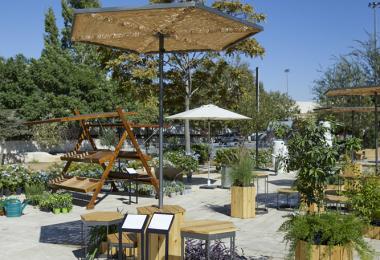
‘Design your own Public Space’ is a modular system designed to empower users to take an active role in composing their own public space.
© Amman Design Week 2019
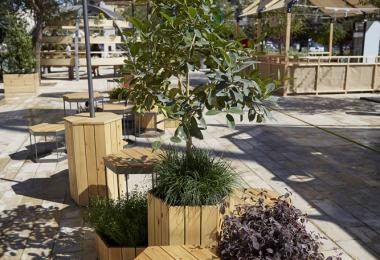
‘Design your own Public Space’ is a modular system designed to empower users to take an active role in composing their own public space.
© Amman Design Week 2019
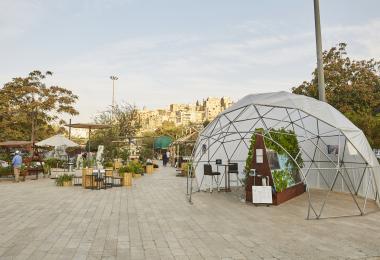
The Geodesic Greenhouse Dome is a mock-up of the one available on the rooftop of the Landmark Hotel in Amman. It features new technologies in agriculture including aeroponics and aquaponics.
© Amman Design Week 2019
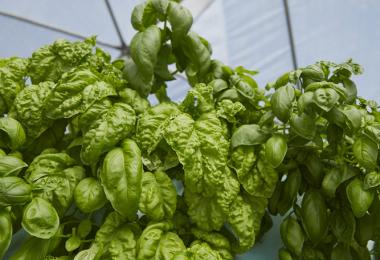
The Geodesic Greenhouse Dome is a mock-up of the one available on the rooftop of the Landmark Hotel in Amman. It features new technologies in agriculture including aeroponics and aquaponics.
© Amman Design Week 2019
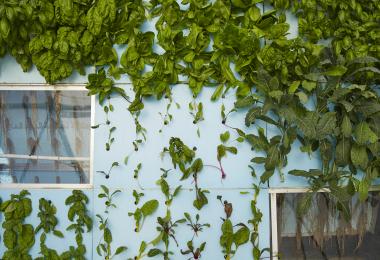
The Aquaponics A-frame is a vertical, soil-less, growing system that utilizes a high pressure spray to water the roots of plants using nutrients from fish waste.
© Amman Design Week 2019
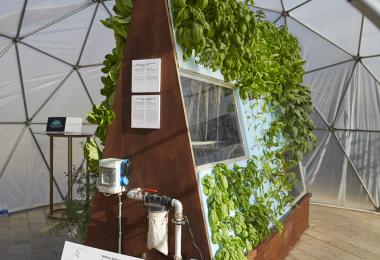
The Aquaponics A-frame is a vertical, soil-less, growing system that utilizes a high pressure spray to water the roots of plants using nutrients from fish waste.
© Amman Design Week 2019
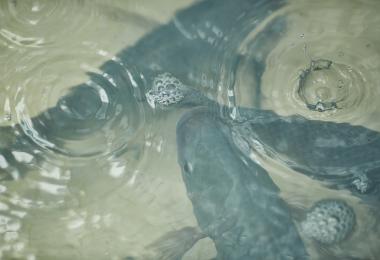
The Aquaponics A-frame is a vertical, soil-less, growing system that utilizes a high pressure spray to water the roots of plants using nutrients from fish waste.
© Amman Design Week 2019
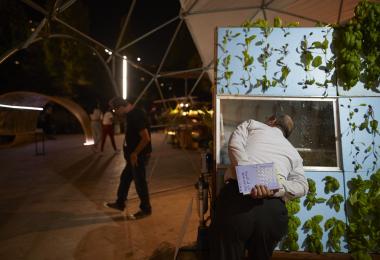
© Amman Design Week 2019
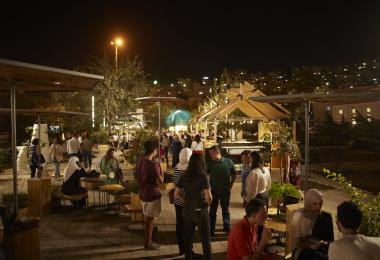
© Amman Design Week 2019
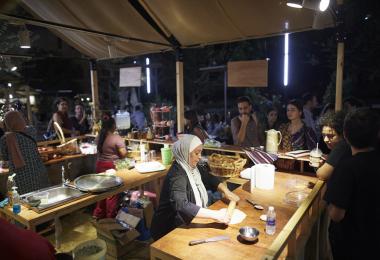
© Amman Design Week 2019
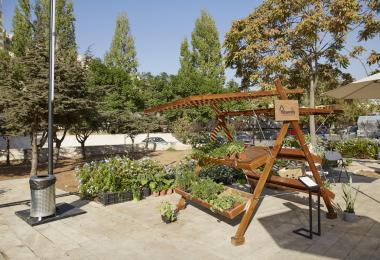
The stall was designed for affordability and durability and consists of flexible elements and joints.
© Amman Design Week 2019
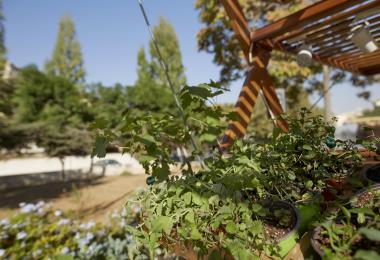
The stall was designed for affordability and durability and consists of flexible elements and joints.
© Amman Design Week 2019
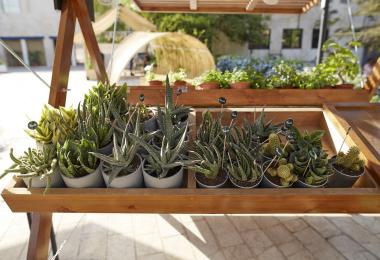
The stall was designed for affordability and durability and consists of flexible elements and joints.
© Amman Design Week 2019
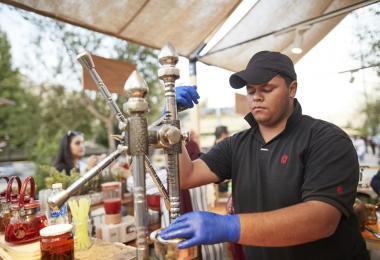
© Amman Design Week 2019
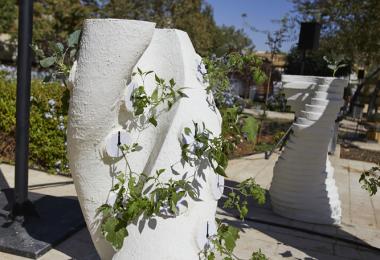
Seed to Eat is an aeroponic system that requires 75% less water than traditional growing methods. Each tower is sustainable and modular, and designed to feed four families all year round.
© Amman Design Week 2019
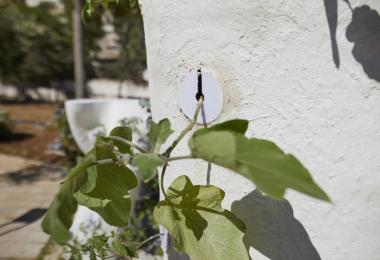
Seed to Eat is an aeroponic system that requires 75% less water than traditional growing methods. Each tower is sustainable and modular, and designed to feed four families all year round.
© Amman Design Week 2019
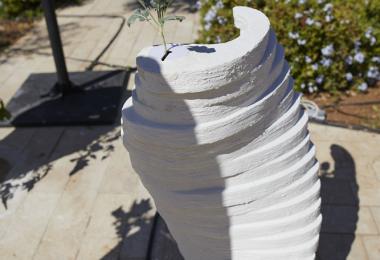
Seed to Eat is an aeroponic system that requires 75% less water than traditional growing methods. Each tower is sustainable and modular, and designed to feed four families all year round.
© Amman Design Week 2019
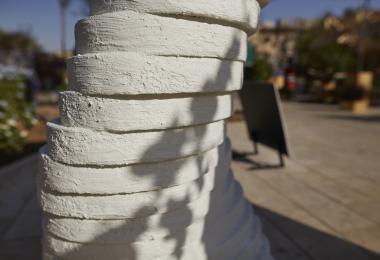
Seed to Eat is an aeroponic system that requires 75% less water than traditional growing methods. Each tower is sustainable and modular, and designed to feed four families all year round.
© Amman Design Week 2019
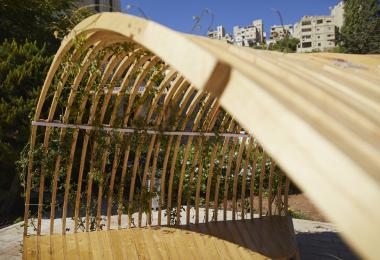
The green pavilion is designed and manufactured by FabLab Irbid’s team. The pavilion works as a solution that utilizes digital technologies to create usable outdoor gathering spaces. The nature-inspired design is also powered by solar energy. The solar energy provides lighting and features an automated irrigation system for the plants.
© Amman Design Week 2019
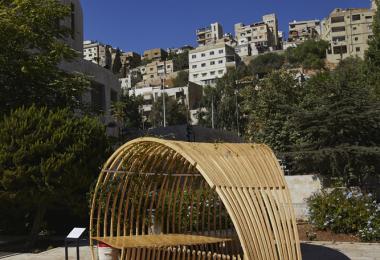
The green pavilion is designed and manufactured by FabLab Irbid’s team. The pavilion works as a solution that utilizes digital technologies to create usable outdoor gathering spaces. The nature-inspired design is also powered by solar energy. The solar energy provides lighting and features an automated irrigation system for the plants.
© Amman Design Week 2019
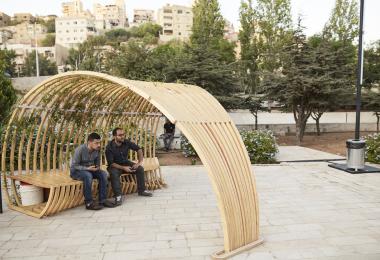
The green pavilion is designed and manufactured by FabLab Irbid’s team. The pavilion works as a solution that utilizes digital technologies to create usable outdoor gathering spaces. The nature-inspired design is also powered by solar energy. The solar energy provides lighting and features an automated irrigation system for the plants.
© Amman Design Week 2019
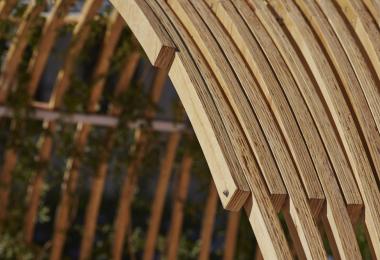
The green pavilion is designed and manufactured by FabLab Irbid’s team. The pavilion works as a solution that utilizes digital technologies to create usable outdoor gathering spaces. The nature-inspired design is also powered by solar energy. The solar energy provides lighting and features an automated irrigation system for the plants.
© Amman Design Week 2019
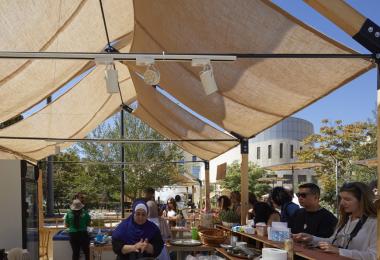
This modular greenhouse typology is functioning temporarily as shelter for a food stand. The food stand also includes a compost system and grey water filter.
Photo by Edmund Sumner
© Amman Design Week 2019
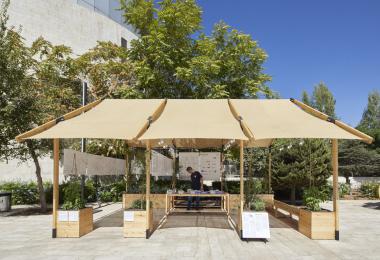
This modular greenhouse typology is functioning temporarily as an information booth and public seating space. The booth is integrated with growing installations that are highly water efficient and low-maintenance.
Photo by Edmund Sumner
© Amman Design Week 2019
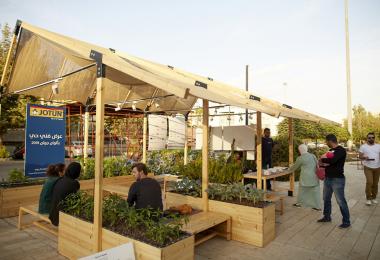
This modular greenhouse typology is functioning temporarily as an information booth and public seating space. The booth is integrated with growing installations that are highly water efficient and low-maintenance.
© Amman Design Week 2019
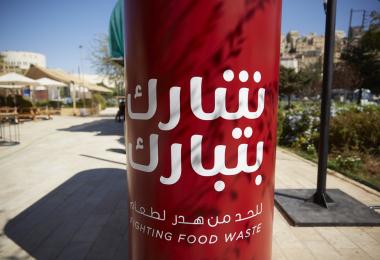
Sharek Bitbarek is an initiative dedicated to fighting food waste through design, social impact, and inclusion. The platform aspires to bring communities together and turn generations of ‘food wasters’ into better recyclers. 'Sharek Bitbarek' uses food waste as a stepping stone to create a new sustainability movement in Jordan.
© Amman Design Week 2019
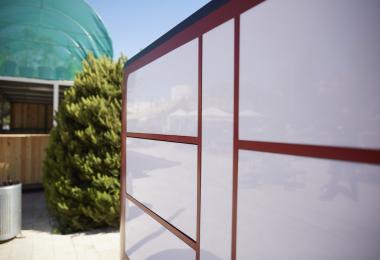
Sharek Bitbarek is an initiative dedicated to fighting food waste through design, social impact, and inclusion. The platform aspires to bring communities together and turn generations of ‘food wasters’ into better recyclers. 'Sharek Bitbarek' uses food waste as a stepping stone to create a new sustainability movement in Jordan.
© Amman Design Week 2019
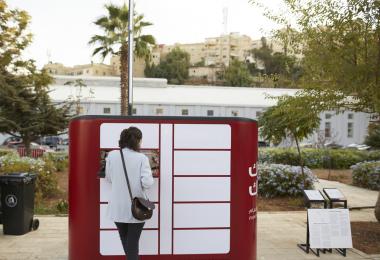
Sharek Bitbarek is an initiative dedicated to fighting food waste through design, social impact, and inclusion. The platform aspires to bring communities together and turn generations of ‘food wasters’ into better recyclers. 'Sharek Bitbarek' uses food waste as a stepping stone to create a new sustainability movement in Jordan.
© Amman Design Week 2019
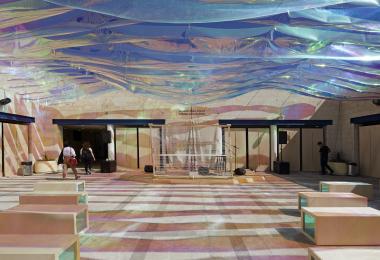
'The Sea of Possibilities' was inspired by Amman Design Week's theme of possibilities.
Photo by Edmund Sumner
© Amman Design Week 2019
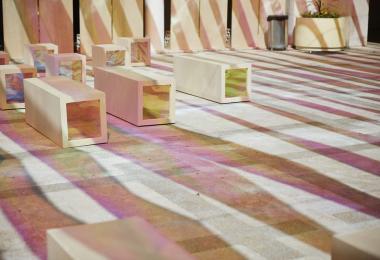
'The Sea of Possibilities' was inspired by Amman Design Week's theme of possibilities.
© Amman Design Week 2019
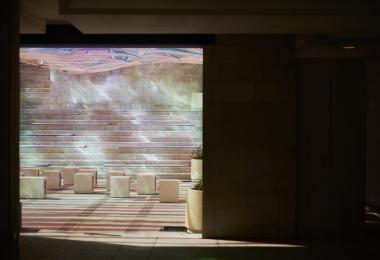
'The Sea of Possibilities' was inspired by Amman Design Week's theme of possibilities.
© Amman Design Week 2019
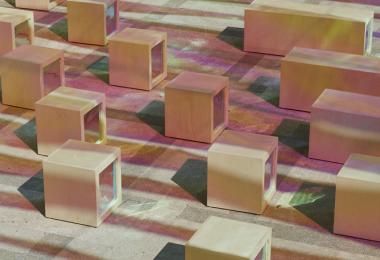
'The Sea of Possibilities' was inspired by Amman Design Week's theme of possibilities.
© Amman Design Week 2019
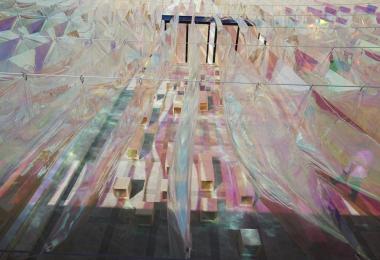
'The Sea of Possibilities' was inspired by Amman Design Week's theme of possibilities.
© Amman Design Week 2019
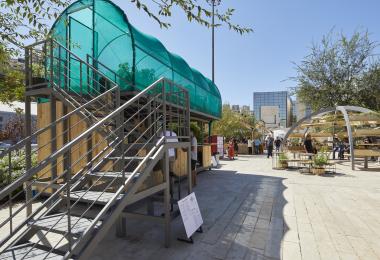
The Freedom Machine is a self-sustaining renewable energy and urban food production unit. Food grown on the top floor is sold through a food kiosk on the bottom floor.
Photo by Edmund Sumner
© Amman Design Week 2019
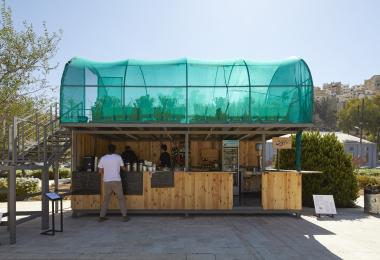
The Freedom Machine is a self-sustaining renewable energy and urban food production unit. Food grown on the top floor is sold through a food kiosk on the bottom floor.
Photo by Edmund Sumner
© Amman Design Week 2019
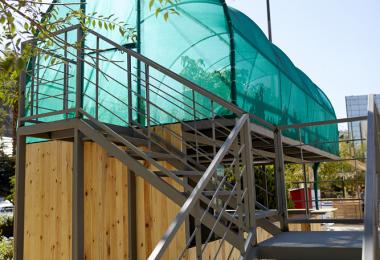
The Freedom Machine is a self-sustaining renewable energy and urban food production unit. Food grown on the top floor is sold through a food kiosk on the bottom floor.
© Amman Design Week 2019
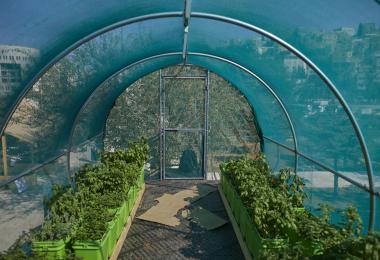
The Freedom Machine is a self-sustaining renewable energy and urban food production unit. Food grown on the top floor is sold through a food kiosk on the bottom floor.
© Amman Design Week 2019
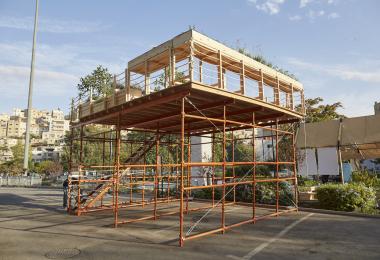
Urban hives proposes to reintroduce the garden in parking lots. Using simple materials and scaffolding, the installation can be installed and used to grow food for the neighbourhood. It also can provide an important pollination spot for urban bees.
© Amman Design Week 2019
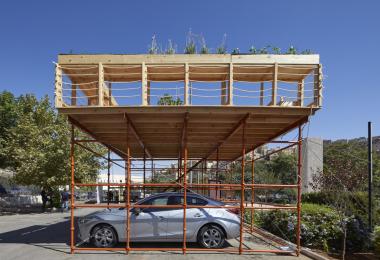
Urban hives proposes to reintroduce the garden in parking lots. Using simple materials and scaffolding, the installation can be installed and used to grow food for the neighbourhood. It also can provide an important pollination spot for urban bees.
Photo by Edmund Sumner
© Amman Design Week 2019
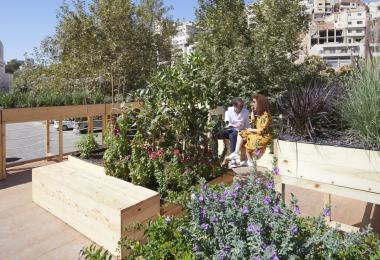
Urban hives proposes to reintroduce the garden in parking lots. Using simple materials and scaffolding, the installation can be installed and used to grow food for the neighbourhood. It also can provide an important pollination spot for urban bees.
Photo by Edmund Sumner
© Amman Design Week 2019
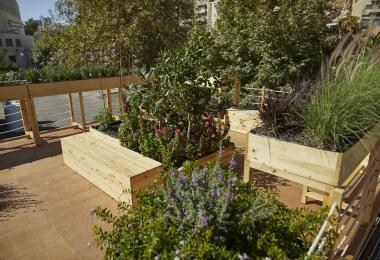
Urban hives proposes to reintroduce the garden in parking lots. Using simple materials and scaffolding, the installation can be installed and used to grow food for the neighbourhood. It also can provide an important pollination spot for urban bees.
© Amman Design Week 2019
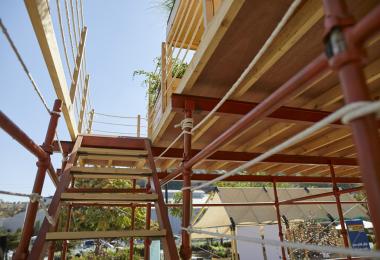
Urban hives proposes to reintroduce the garden in parking lots. Using simple materials and scaffolding, the installation can be installed and used to grow food for the neighbourhood. It also can provide an important pollination spot for urban bees.
© Amman Design Week 2019
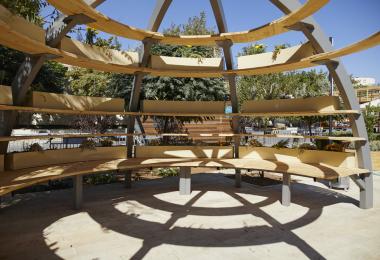
The installation was designed for young people involved in the social innovation incubators at the Za’atari refugee camp.
© Amman Design Week 2019
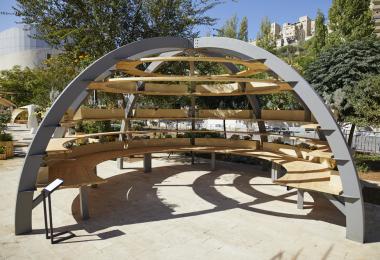
The Growglobe is a green, wooden hang-out and co-working space. The installation was designed for young people involved in the social innovation incubators at the Za’atari refugee camp.
© Amman Design Week 2019
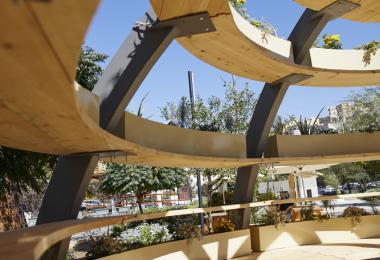
The Growglobe is a green, wooden hang-out and co-working space. The installation was designed for young people involved in the social innovation incubators at the Za’atari refugee camp.
© Amman Design Week 2019
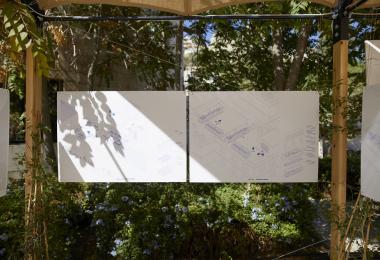
This research is presented to bring the idea of rooftop farming as a tool for climate change adaptation into a broader discourse. The research also aims to discuss how community-based urban agriculture projects can be made more sustainable and adjusted to local dynamics.
© Amman Design Week 2019
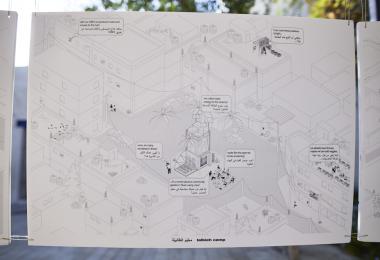
This research is presented to bring the idea of rooftop farming as a tool for climate change adaptation into a broader discourse. The research also aims to discuss how community-based urban agriculture projects can be made more sustainable and adjusted to local dynamics.
© Amman Design Week 2019
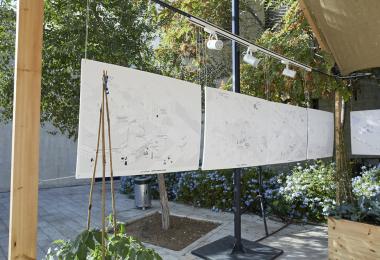
This research is presented to bring the idea of rooftop farming as a tool for climate change adaptation into a broader discourse. The research also aims to discuss how community-based urban agriculture projects can be made more sustainable and adjusted to local dynamics.
© Amman Design Week 2019
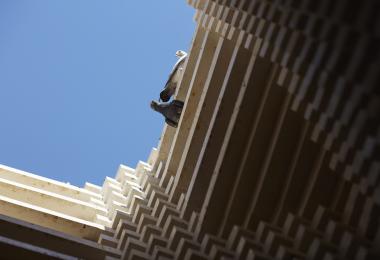
The Urban Pigeon Tower is an urban acupuncture intervention that touches on issues of urban biodiversity and sustainable food production within cities. A modern structure that can be installed anywhere in the city, the pigeon tower is a small-scale food production system, a valuable resource for soil building and crop production, and a gateway to nature that aims to expand our urban compassion footprint and rewild the city as a rich multi-species ecosystem.
© Amman Design Week 2019
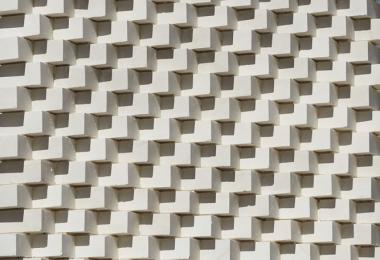
The Urban Pigeon Tower is an urban acupuncture intervention that touches on issues of urban biodiversity and sustainable food production within cities. A modern structure that can be installed anywhere in the city, the pigeon tower is a small-scale food production system, a valuable resource for soil building and crop production, and a gateway to nature that aims to expand our urban compassion footprint and rewild the city as a rich multi-species ecosystem.
© Amman Design Week 2019
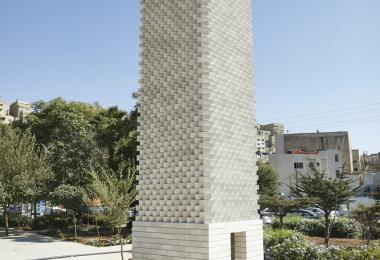
The Urban Pigeon Tower is an urban acupuncture intervention that touches on issues of urban biodiversity and sustainable food production within cities. A modern structure that can be installed anywhere in the city, the pigeon tower is a small-scale food production system, a valuable resource for soil building and crop production, and a gateway to nature that aims to expand our urban compassion footprint and rewild the city as a rich multi-species ecosystem.
© Amman Design Week 2019
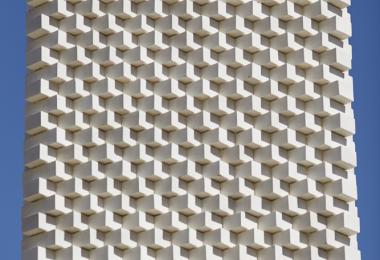
The Urban Pigeon Tower is an urban acupuncture intervention that touches on issues of urban biodiversity and sustainable food production within cities. A modern structure that can be installed anywhere in the city, the pigeon tower is a small-scale food production system, a valuable resource for soil building and crop production, and a gateway to nature that aims to expand our urban compassion footprint and rewild the city as a rich multi-species ecosystem.
© Amman Design Week 2019
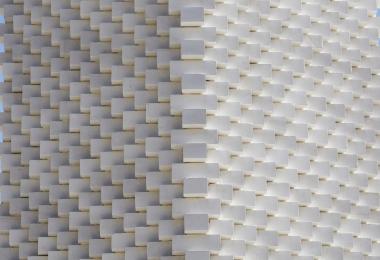
The Urban Pigeon Tower is an urban acupuncture intervention that touches on issues of urban biodiversity and sustainable food production within cities. A modern structure that can be installed anywhere in the city, the pigeon tower is a small-scale food production system, a valuable resource for soil building and crop production, and a gateway to nature that aims to expand our urban compassion footprint and rewild the city as a rich multi-species ecosystem.
© Amman Design Week 2019
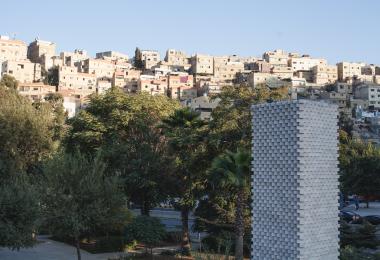
The Urban Pigeon Tower is an urban acupuncture intervention that touches on issues of urban biodiversity and sustainable food production within cities. A modern structure that can be installed anywhere in the city, the pigeon tower is a small-scale food production system, a valuable resource for soil building and crop production, and a gateway to nature that aims to expand our urban compassion footprint and rewild the city as a rich multi-species ecosystem.
© Amman Design Week 2019
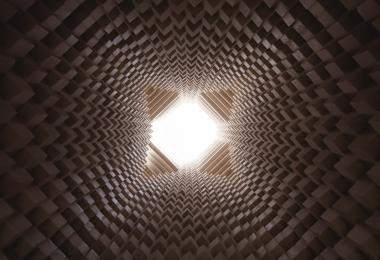
The Urban Pigeon Tower is an urban acupuncture intervention that touches on issues of urban biodiversity and sustainable food production within cities. A modern structure that can be installed anywhere in the city, the pigeon tower is a small-scale food production system, a valuable resource for soil building and crop production, and a gateway to nature that aims to expand our urban compassion footprint and rewild the city as a rich multi-species ecosystem.
© Amman Design Week 2019